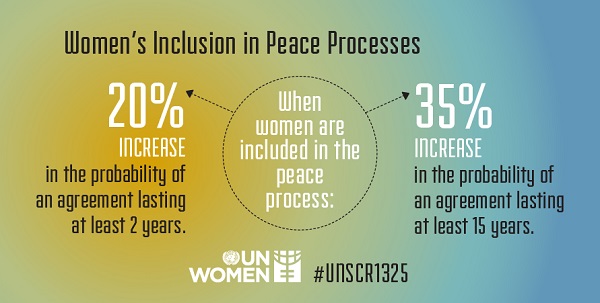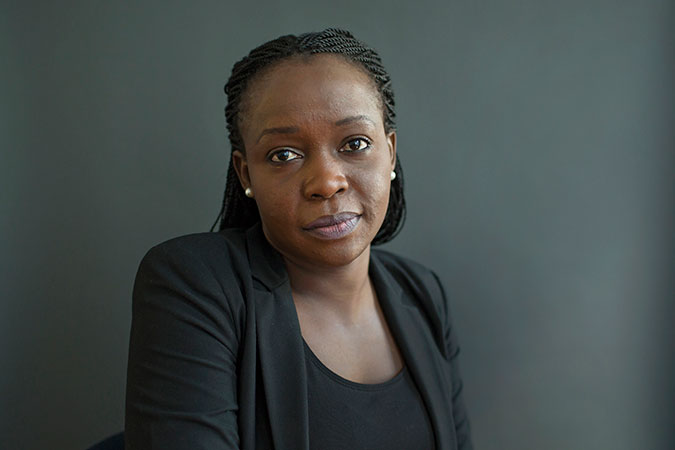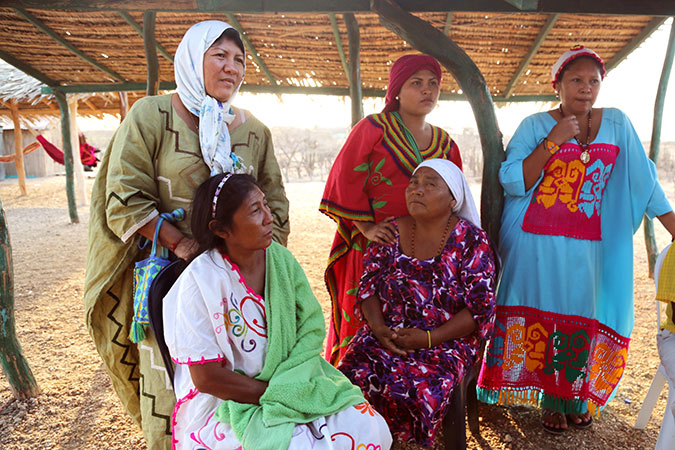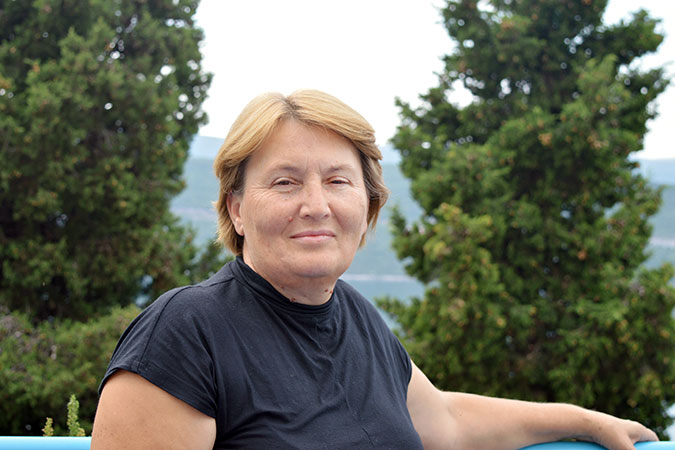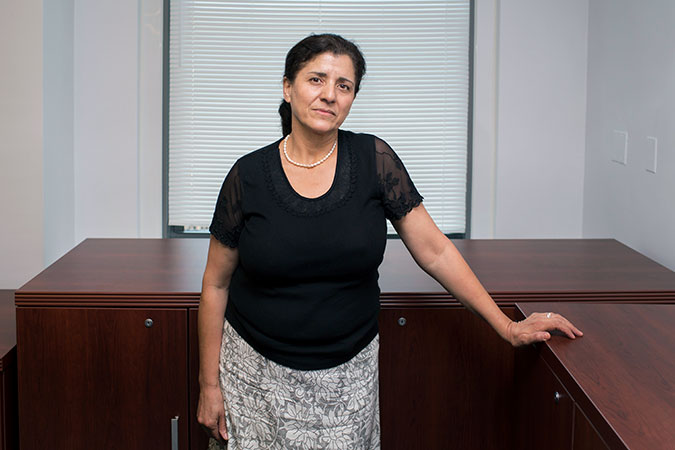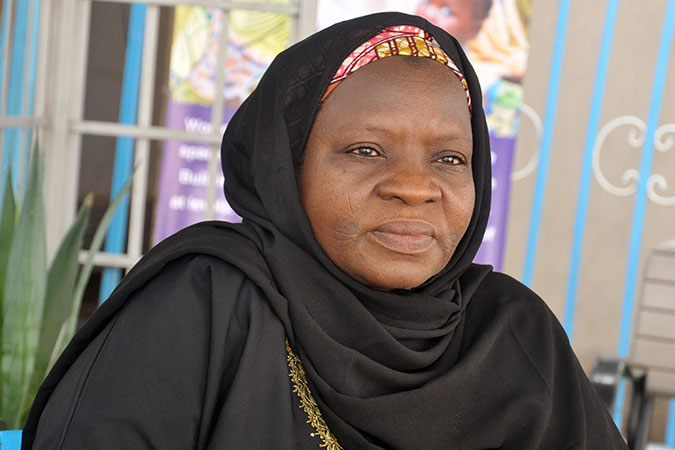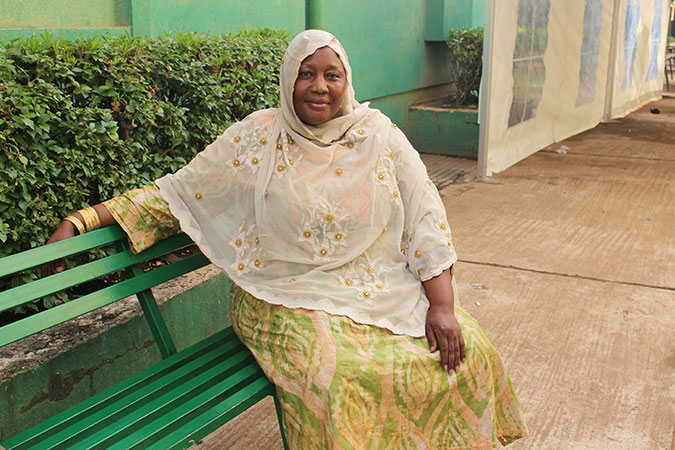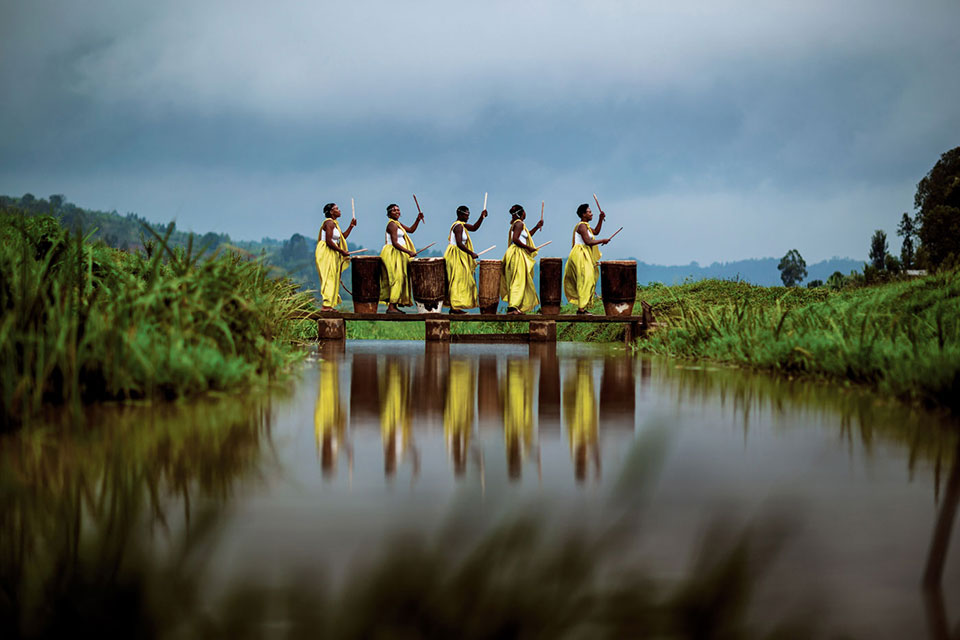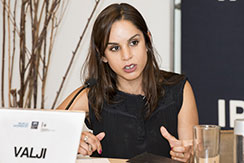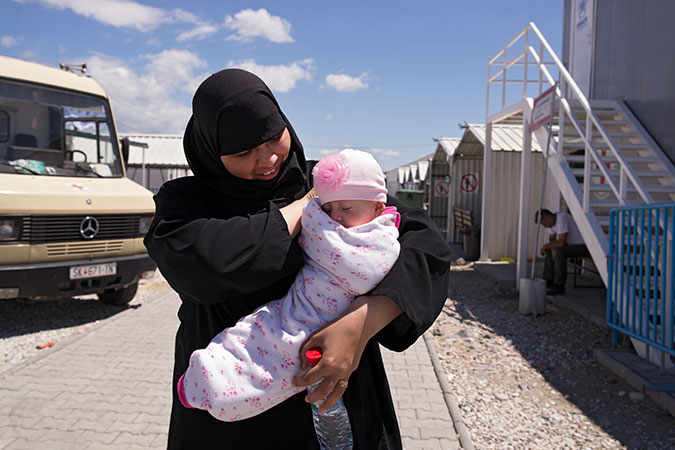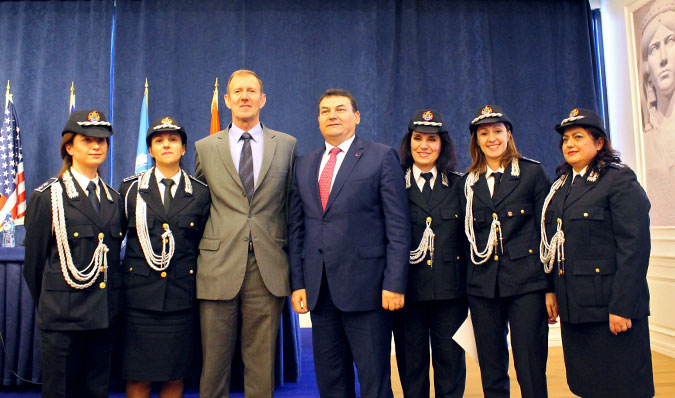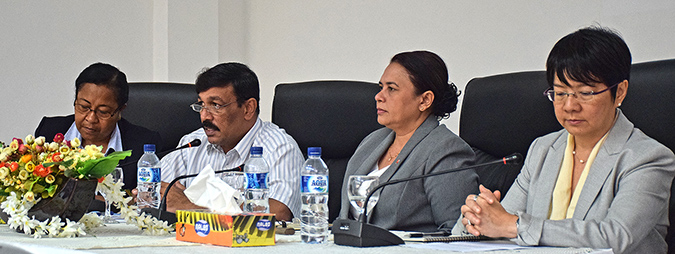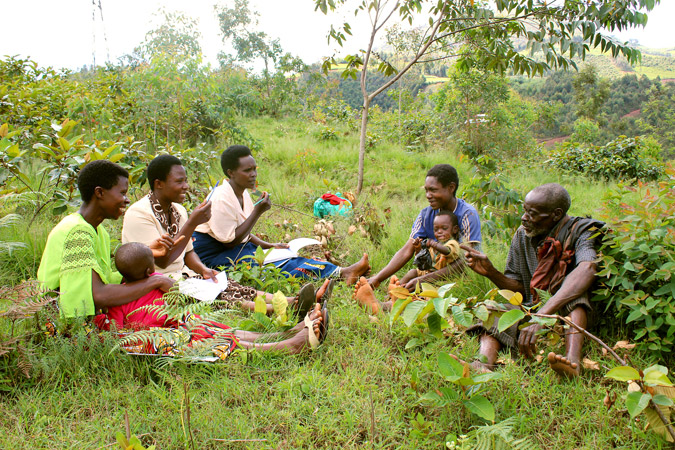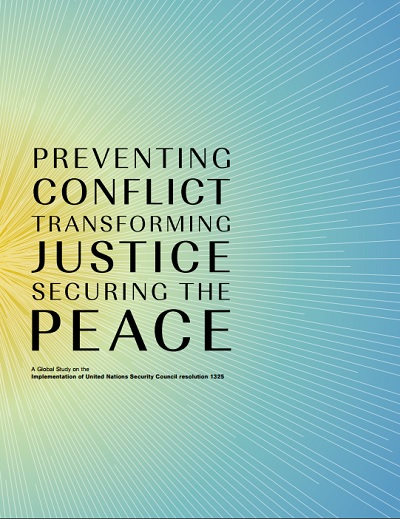Women at the forefront of peacebuilding
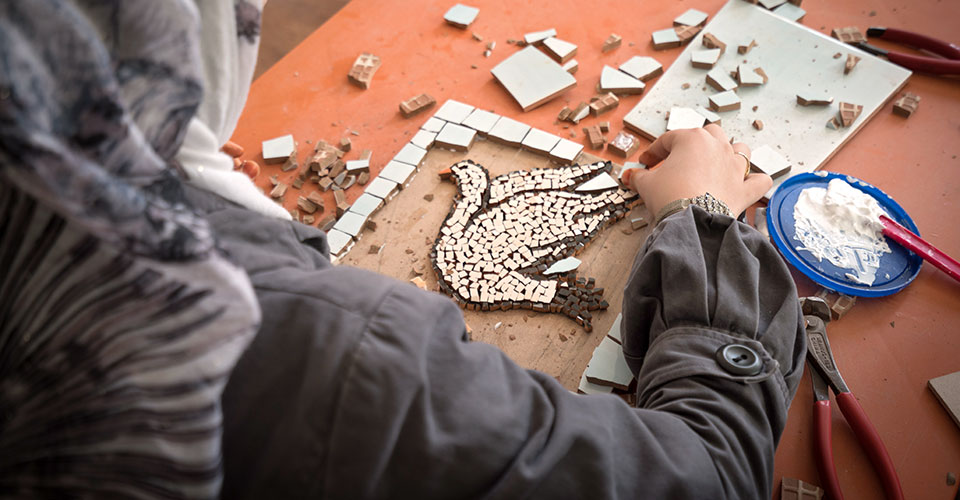
Videos |From where I stand |Photo essay |Expert’s take |Feature stories |Speeches and statements
Publication |Events and webcasts |Join the conversation |Infographic |Facts & figures
The issue
War and conflicts are ravaging communities across the world today. The recent years have also seen wide-spread targeting of women and girls in conflict zones and a marked pushback on women’s rights. Sixteen years since the adoption of UN Security Council resolution 1325 in 2000, the women, peace and security agenda remains relevant and critical in the face of rising violence, extremism and deadly conflicts.
Even as women continue to bear the brunt of war, there is increased recognition of their pivotal role as peacebuilders. For example, in 2015, 7 out of 10 peace agreements signed included gender specific provisions [1]—a vast improvement compared against the analysis showing that only 73 out of 664 agreements produced between 1990 and 2000 included a reference to women [2]. More security sector personnel are now trained to prevent and respond to sexual and gender-based violence, and more countries are implementing national action plans or related strategies.
When women are included in peace processes, there is a 20 per cent increase in the probability of an agreement lasting at least 2 years, and a 35 per cent increase in the probability of an agreement lasting at least 15 years [3]. There is a growing momentum for fulfilling the women, peace and security agenda: at the 2015 High-Level Review of the implementation of resolution 1325, more than 180 political, financial and institutional commitments were made by Member States and regional organizations. Resolution 2242, which was adopted unanimously by the UN Security Council during the 2015 Open Debate, together with the seven previous resolutions and related policy commitments on women, peace and security, provide a strong common agenda for action.
Yet, implementation of policies and international commitments on the ground remain unfulfilled. Much more needs to be done. For example, women make only 3 per cent of UN military peacekeepers [4]. In conflict-affected countries, women’s share of seats in parliament is four per cent lower than the global average of 22.7 per cent [5]. UN Secretary-General Ban Ki-moon recently urged all actors, including governments, to earmark 15 per cent of peacebuilding funds to projects that directly advance gender equality, which would not always require new funding, but rather, a prioritization within existing funds.
On 25 October 2016, the UN Security Council will convene its annual Open Debate on Women, Peace and Security, with a focus on how Member States, regional organizations and the UN have followed-up on commitments and recommendations from the 2015 High-level Review and the related Global Study on the implementation of Security Council resolution 1325 (2000). The Debate will also consider future steps to advancing the agenda, taking into account new threats and emerging challenges, including the rise of violent extremism, the protracted nature of displacement and the impact of climate shocks.
The new report of the UN Secretary-General on women, peace and security (S/2016/822) brings forth information on recent trends and highlights latest development and results. It also provides an update on the status of implementation since 1 January 2015 and draws attention to areas of stagnation and regression and other concerning developments. The report features initiatives such as the new mechanism in the Security Council, the Informal Experts Group on women, peace and security, designed to ensure greater flows of quality and actionable information to the Council; the new Global Acceleration Instrument on women, peace and security and humanitarian action, aimed at catalyzing new funding for commitments on this agenda and country-level progress in a range of areas from implementation of National Action Plans to increased women’s leadership in institutions responsible for peace and security. It further notes that the priority areas identified last year continue to require urgent action.
On the 16th anniversary of UN Security Council Resolution 1325, UN Women spotlights women’s leadership and the critical role they play in preventing conflict, sustaining peace and shaping more effective responses to today’s complex crises.
See last year's In focus on on 15 years of Security Council resolution 1325.
Videos
Colombian women play central role in peace process
Debora Barros Fince is a Waayu indigenous lawyer and human rights defender from Bahia Portete, Colombia. Her community was massacred by Colombian paramilitaries in 2004, leading the Wayuu to abandon their ancestral homeland. After the massacre she went on to create an organization called Mujeres Tejiendo la Paz (Women Weaving Peace), which works with victims of sexual and domestic violence and aims to include Colombian women in peacebuilding and national reconciliation.
Malian women confront war
The recent conflict in northern Mali has led to an upsurge in gender-based and sexual violence against women and girls. Women and girls displaced by war are especially vulnerable to rape and child marriage, and many must now deal with the physical and psychological consequences of the violence that was inflicted upon them. Brave Malian women have stood up to violence and become agents of peace.
Daniel Craig shines a light on women's role in peace
Actor Daniel Craig visits the UN Peacekeeping Mission in Cyprus in his role as UN Global Advocate for the Elimination of Mines and Explosive Hazards. The UN Mission in Cyprus is the first and only to include a female Force Commander: Major general Kristin Lund. Watch as Craig visits Cyprus' minefields and demilitarized buffer zone, and shines a light on women's role in the country's ongoing peace process.
Peacekeeping training for female military officers
Several Security Council resolutions on women, peace, and security, as well as commanders on the ground, recognize that women’s leadership and participation in peacekeeping is key to mission success. However, the number of women military personnel deployed in current peacekeeping missions is low. To address this gap, UN Women's Multi-Country Office for India, Bhutan, Maldives and Sri Lanka, in collaboration with the Centre for United Nations Peacekeeping conduct a special training course dedicated exclusively to female military officers.
From where I stand
This editorial series captures the unique and powerful stories of people around the world, through compelling first-person accounts of their daily sustainable development challenges and how they are bringing about change. Read more»
“The best part of my youth has been spent working for peace. Now it feels like everyone is slowly giving up on South Sudan. But giving up is not an option for me....”
Rita Lopidia is based in Juba, South Sudan, and has ten years of experience in gender, women, peace and security in both Sudan and South Sudan. Read more»
“I was a person with many dreams. I graduated from law school in 2003 and wanted to help my parents, my brothers and my community....”
Debora Barros Fince is an indigenous activist, human rights defender and lawyer who travelled to Havana, Cuba, as part of the “victims delegation” to share her perspective during the peace process. Read more»
“Helping women heal from the scars of the conflict means giving them control over their lives...”
Nada Marković is a human rights activist from Bosnia and Herzegovina who works with with an organization that seeks to empower women from rural communities. Read more»
“First, I had to stop working because we couldn’t access the communities in the suburbs of Damascus once the conflict started. Then, I lost all my friends....”
Monira Hwaijeh, 58, is one of the 12 members of the Syrian Women’s Advisory Board (WAB), established by the UN Special Envoy for Syria earlier this year. Read more»
“Inequality is at the root of the conflict. When you have peace in the home, you can have peace in the society...”
Hajiya Halima Mahdi, 60, is a female chief and retired civil servant from Kaltungo local government, Gombe State, Nigeria. Read more»
“Extremism started spreading slowly, like a cancer, since the conflict erupted in 2012...”
Haidara Djeneba Sy is a religious woman leader from Yirimadio (Bamako), Mali. In May 2016, she became the first woman Vice President of the National Network of Malian Muslim Youth (UJMMA). Read more»
Photo essay
Women between war and peace
Women experience war differently from men. They see firsthand the unique impact that conflict, increased militarization and violent extremism has on their communities, their families, and their own bodies. Less visible than the headlines, however, is how women carry on in spite of violence that may surround them: they seek education, continue careers, and raise families — sometimes traveling long distances to bring their children to safety. They are also working to prevent conflict and extremism, and work as activists, judges, and government officials. UN Women presents images from the archive of renowned photography agency Magnum Photos that speak to the many ways women’s lives are impacted by conflict. Read more »
Expert’s take
Expert’s take: Women’s meaningful participation still the missing ingredient in peacebuilding
Nahla Valji, Deputy Chief of UN Women’s Peace and Security Section, writes how women’s meaningful participation is the most important and overlooked ingredient for sustainable peace, and what can be done to improve peace and security response. Read more »
Feature stories
Trapped in transit, women refugees of Vinojug await a future
The refugee transit centre Vinojug near Gevgelija, some 6 kilometres north of the border with Greece and the former Yugoslav Republic of Macedonia, looks like a make-shift village. It was opened in the summer of 2015 and has 133 residents now, mostly women and children, stuck between the future they set out to reach and the past they were trying to escape.
Steering the path to leadership for women police officers in Albania
UN Women-supported training focuses on integrating a gender perspective and developing policies to increase women's participation as leaders and decision-makers in the Albanian State Police force.
Investing in women for peace and future generations: Timor-Leste Adopts a National Action Plan on Security Council Resolution 1325
Timor-Leste has approved a National Action Plan for Women, Peace and Security for 2016-2020, becoming the third country in Southeast Asia to adopt such a plan based on a UN Security Council resolution.
Women mediators promote peace in Burundi
As political turmoil intensifies, over 500 Burundian women are working as community peace mediators, actively helping to avert over 5,000 conflicts.
Statements and speeches
“Commitments must not be simply plans on paper”
UN Women Executive Director Phumzile Mlambo-Ngcuka presents the UN Secretary-General’s report on Women, Peace and Security at the UN Security Council Open Debate.
Publication
Preventing Conflict, Transforming Justice, Securing the Peace
This report, prepared for the 15th anniversary of Security Council resolution 1325, brings together research demonstrating that women’s empowerment and gender equality contribute to the conclusion of peace talks and sustainable peace.
Events
24 October
Messaging and Counter-Messaging in the Context of Violent Extremism: The Gender Dimension
This side event will explore the practical and policy dimension of applying UN Security Council resolution 2242 and integrate a gender dimension into UN counterterrorism efforts, including through supporting member states in advancing implementation of the UN Global Counterterrorism Strategy. It will focus on two areas, in particular: (i) the roles of women and gender in narratives and counter-narratives; and (ii) the impact of messaging on women and girls. UN Women Deputy Executive Directory Lakshmi Puri will provide introductory remarks and serve as moderator.
Time: 1:15-2:45
Location: UNHQ, conference room F
RSVP: E.saint-firmin[at]unwomen.org by 23 October.
YPS and WPS: Complementarities and Gaps Between the Agendas for Peace
This event brings together young women leading efforts to building and sustaining peace in their countries, bringing to light the agency of young women as peacebuilders and exploring the intersections between young women, peace and security. Panelists will draw on their experiences and discuss their perspectives on where the YPS and WPS agendas complement one another, and where there have been critical gaps, both in terms of the gender perspectives in discussions around YPS as well as youth and young women’s perspectives in the WPS agenda. Paivi Kannisto, Chief of Peace and Security Section, UN Women, will provide summary and closing remarks.
Time: 2.30-3.45 p.m.
Location: TBD
25 October
UN Security Council Open Debate on Women, Peace and Security
Watch an archived webcast:
Part 1
Part 2
Part 3
View photos from the UN Security Council Open Debate and related events:
26 October
Flagship Programme Initiatives Donor Roundtable
This first roundtable, which Norway and UN Women are co-convening, aims to: Share the Flagship Programme Theory of Change for partners’ review and inputs; invite partners to participate in the Flagship Programme including through a Steering Committee mechanism; review inputs from partners on the suggested countries and agree on additional countries; agree on the breakdown of investment for global and country level components; Secure financing for the full three years of the programme. The event will feature four portfolio countries – Jordan, Colombia, Sri Lanka and Mali. UN Women Executive Director Phumzile Mlambo-Ngcuka will speak.
Time: 9-10.30 a.m.
Location: Permanent Mission of Norway
Peace Agreements, Power-Sharing, and Political Transitions: Women’s Roles in Colombia, Syria, Yemen and Beyond
As part of the High-level review on WPS, UN Women commissioned leading researchers to make contributions which fed into the final Global Study on 1325. This event brings together some of those researchers in the field of women’s participation in peace negotiations to discuss their work, both within the scope of the Global Study and beyond. Participants will present key findings on women’s participation in, and influence on peace and mediation processes, and how that has impacts on the longer-term outcomes for peace. Furthermore, the panelists will discuss the challenges, opportunities and prospects of improved women’s participation and gender representation in ongoing peace processes in Colombia, Syria and Yemen and other conflict and post-conflict situations.
Time: 1-2.45 p.m.
Location: IPI 777 United Nations Plaza New York, NY 10017-3521
RSVP here
27 October
Financing the Women, Peace and Security Agenda: Good Practice and Lessons Learned for Accountability and Implementation
This roundtable on WPS financing will create a space to exchange learning around good practice interventions on strengthening financing for effective implementation of the WPS agenda. It will build on discussions on financing the WPS agenda around the Global Study on UNSCR 1325 and the Civil Society survey as well as civil society discussions on action to #MoveTheMoney from war to peace and gender justice. It will result in concrete recommendations on how member states can take practical action for implementation and accountability.
Time: 1-2.30 p.m.
Location: UNHQ, room TBD
RSVP: ghita.khyari[at]unwomen.org
Women, Peace and Volunteerism: Partnerships for Sustaining Peace The United Nations Volunteers (UNV) programme, the Peacebuilding Support Office (PBSO) and the UN Women have established a partnership in the framework of the Peacebuilding Fund’s Gender Promotion Initiative in order to accelerate the progress towards the implementation of the UN Secretary-General’s Seven-Point Action Plan on Gender-responsive Peacebuilding. Against the backdrop of the 16th anniversary of SCR 1325, UNV, PBSO and UN Women are jointly organizing a side event, at which UN Volunteers, will be presenting their work on gender-responsive peacebuilding programming.
Time: 1-2.45 p.m.
Location: Permanent Mission of Germany, 871 United Nations Plaza, New York, NY 10017
RSVP: Email to heidrun.fritze[at]undp.org and jan.snoeks@undp.org by Monday 24 October 2016, Please bring a photo ID or Ground Pass.
Join the conversation
Help us raise awareness about the important role that women play in promoting sustainable peace and join the conversation about Security Council resolution #UNSCR1325! You can check out and promote our social media content in English, Spanish, French, Arabic and Russian here.
To share our content on women, peace and security, you can also follow UN Women on all of these platforms:
@un_women, @onumujeres, @onufemmes, @phumzileunwomen, on Twitter
UN Women, ONU Mujeres, ONU Femmes, on Facebook
unwomen on Snapchat
UN Women on Google+
UN Women on Instagram
UN Women on Pinterest
UN Women on LinkedIn
Notes
[1] UN Security Council (2016). Report of the Secretary-General on women, peace and security, p. 5
[2] UN Security Council (2015). Report of the Secretary-General on women, peace and security
[3] Laurel Stone (2015). Study of 156 peace agreements, controlling for other variables, “Quantitative Analysis of Women’s participation in Peace Processes” in Reimagining Peacemaking: Women’s Roles in Peace Processes, Annex II
[4] UN Security Council (2016). Report of the Secretary-General on women, peace and security, p. 7.
[5] Inter-Parliamentary Union (2015). Parline database query; UN Security Council (2016). Report of the Secretary-General on women, peace and security, p. 15.
